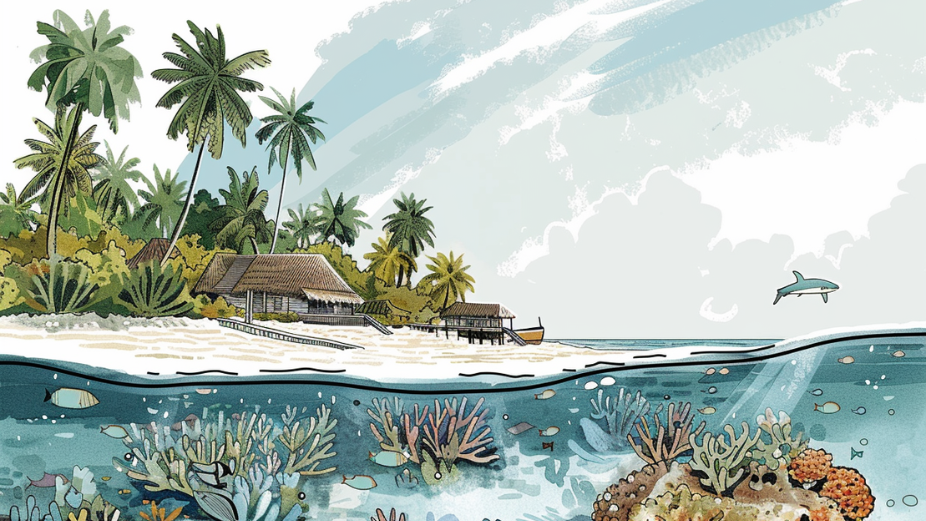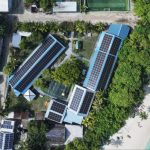
In the kaleidoscopic archipelago of the Maldives, where azure waters meet coral atolls, an urgent call for financial reform echoes through the halls of international forums. The Maldives, emblematic of the unique challenges faced by Small Island Developing States (SIDS), is at the forefront of advocating for an overhaul of the global financial architecture. This push aims to secure concessional financing and debt relief, crucial for bolstering economic resilience amidst an array of vulnerabilities that threaten its very existence.
The Fourth International Conference on Small Island Developing States, held in the tranquil yet politically vibrant setting of Antigua and Barbuda, crystallised these demands. The event, encapsulated in the document “The Antigua and Barbuda Agenda for SIDS (ABAS) – a Renewed Declaration for Resilient Prosperity,” lays bare the collective aspirations and exigencies of SIDS. Within this comprehensive agenda, the Maldives’ voice resonates with clarity and urgency, advocating for reforms that are not just necessary but existential.
A Call for Concessional Finance
The Maldives, with its economy heavily tethered to tourism and fisheries, is acutely aware of its fiscal fragility. The island nation has been particularly vocal about the need for concessional financing—a form of financial aid with more generous terms than standard market loans. Such financing is pivotal for SIDS, which are often burdened with high debt levels and limited access to international capital markets. The ABAS document illustrates this necessity, highlighting that concessional finance can mitigate fiscal constraints and reduce the risk of indebtedness, particularly for highly indebted nations like the Maldives.
At the heart of this advocacy is the concept of a Multidimensional Vulnerability Index (MVI). The Maldives champions this index as a tool to better capture the unique vulnerabilities of SIDS, which are not adequately reflected in traditional financial assessments. These vulnerabilities include susceptibility to natural disasters, economic shocks, and climate change impacts—all of which disproportionately affect small island economies. By incorporating the MVI into existing practices and policies for debt sustainability, the international community can offer more tailored and effective support.
Reforming International Financial Architecture
The Maldives’ call for reform extends to the very structure of international financial institutions. There is a pressing need for these institutions to recognise and address the specific circumstances of SIDS. This includes ensuring the representation and participation of SIDS in decision-making processes, thereby making these institutions more inclusive and responsive to the needs of the most vulnerable. The ABAS document reiterates this point, calling for a reform of the international financial architecture to facilitate easier access to affordable finance for SIDS.
One of the key proposals is the expansion of multilateral lending to SIDS. The Maldives advocates for measures that could potentially yield additional lending headroom, aiming to strengthen support for SIDS in achieving resilient prosperity. This involves not only increasing the volume of financial assistance but also ensuring that the terms of such assistance are conducive to long-term development and sustainability.
Harnessing Public-Private Partnerships
In parallel with seeking reforms in international finance, the Maldives recognises the critical role of public-private partnerships (PPPs) in driving economic development. PPPs are seen as vital for mobilising investments in infrastructure, renewable energy, and other sectors crucial for sustainable development. The Maldives’ approach involves creating an enabling environment for private sector investment, which includes strengthening local institutions and regulatory frameworks to support entrepreneurial ventures and innovation.
The Broader Context
The Maldives’ advocacy is not an isolated endeavour but part of a broader movement among SIDS to secure a sustainable and resilient future. The ABAS agenda reflects a collective understanding that economic resilience cannot be achieved in isolation. It requires a holistic approach that integrates environmental sustainability, social equity, and robust governance. For the Maldives, this means not only securing financial resources but also ensuring that these resources are used effectively to build a diversified and adaptable economy.
Charting a Sustainable Future
As the Maldives navigates the choppy waters of economic uncertainty, its call for concessional financing and international financial reform stands as a beacon of hope. The island nation’s efforts, enshrined in the ABAS document, highlight the critical need for a global financial system that is more inclusive, responsive, and attuned to the unique challenges of SIDS. In the face of rising seas and economic volatility, the Maldives’ push for financial resilience is not just a policy proposal but a lifeline for its future.
The world, with all its interconnected economies and shared vulnerabilities, would do well to heed this call. For in the plight of the Maldives, we see a reflection of the broader challenges facing our global community—a stark reminder that the time for action is now.









